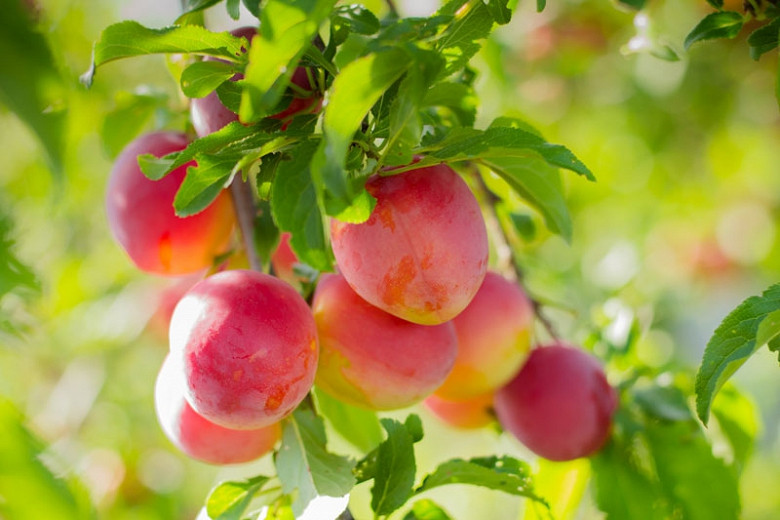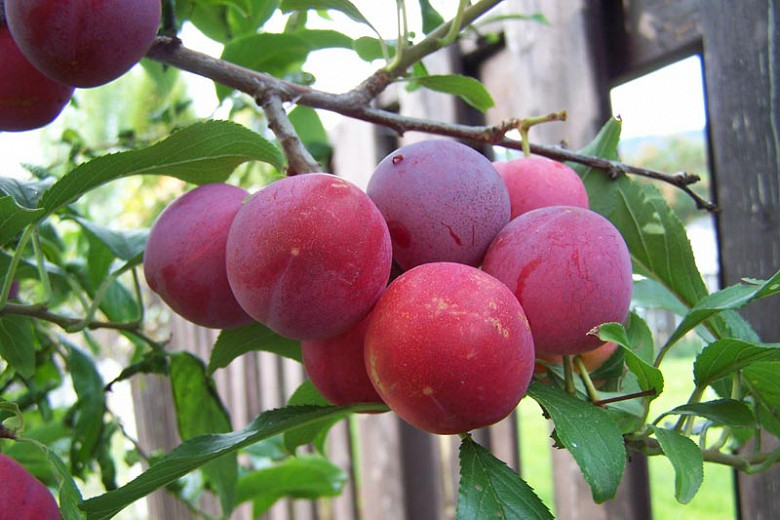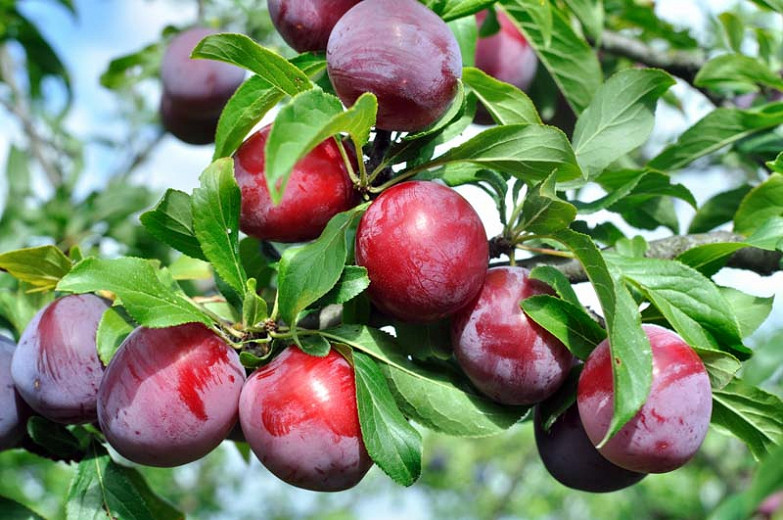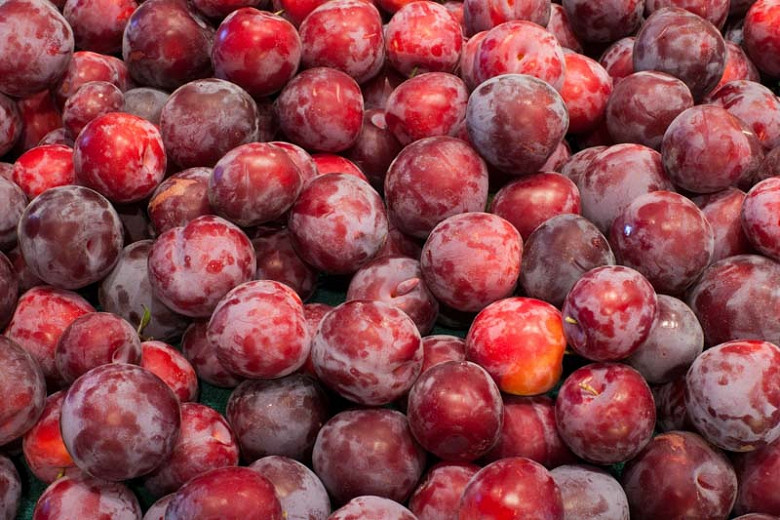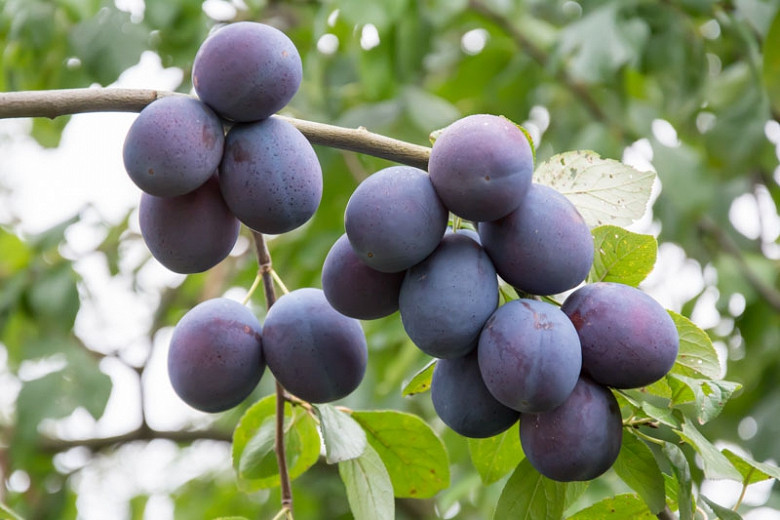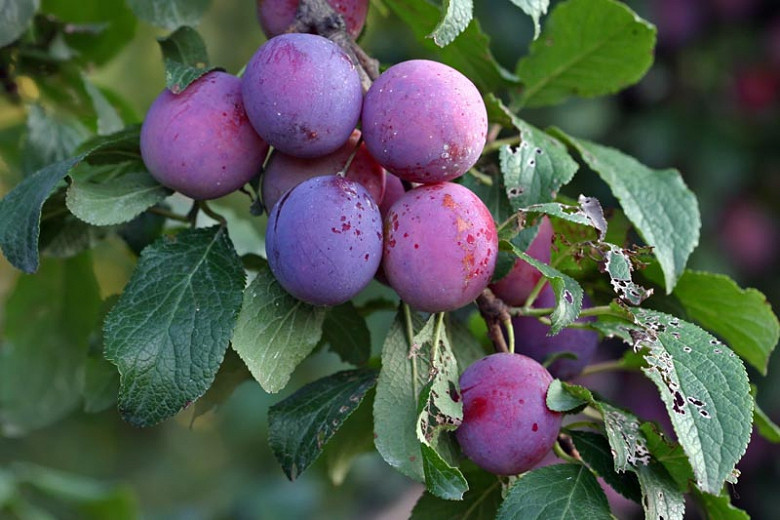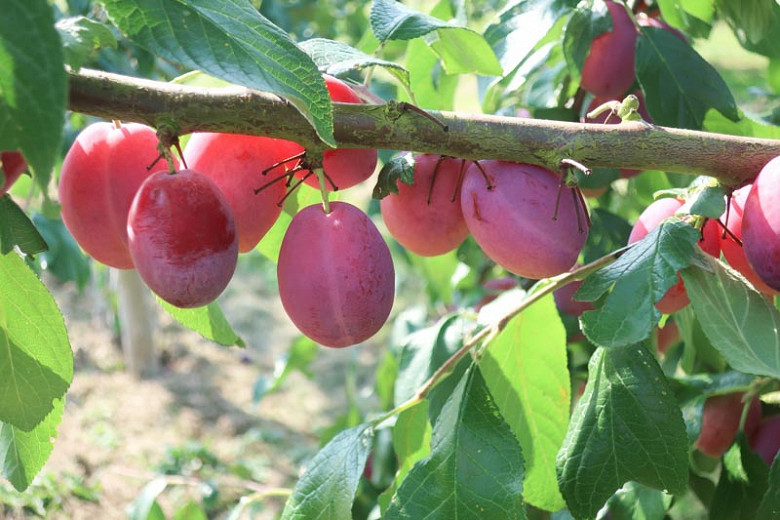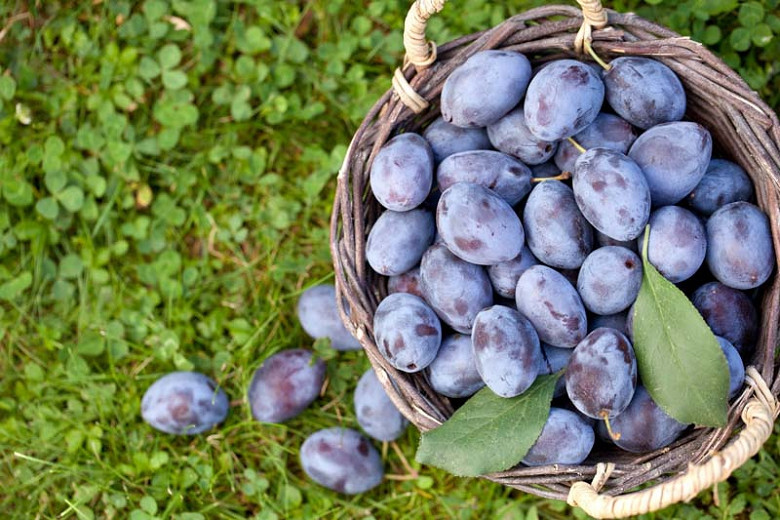Prunus salicina Burbank (Japanese Plum)
Bearing fruit early, Prunus salicina 'Burbank' is an heirloom variety of Japanese plum tree with a wide spreading canopy clothed in elliptic, finely serrated, bright green leaves. In early spring, it bursts into a profusion of sweetly fragrant, white 5-petaled blossoms, creating a spectacular display. They are followed by a heavy crop of rounded, red-purple plums with a yellow blush. The fruits ripen over a long season from mid to late summer and require several pickings. The flesh is amber, firm, sweet and very juicy. They are perfect for eating, canning or making jelly. This Japanese plum tree requires cross pollination from different Japanese plum cultivars. A lovely plum tree in blossom, in leaf, and especially in fruit when the heavy plums hang from delicate branches. Because it blooms early, it is more susceptible to spring frost.
- Typically grows up to 35 ft. tall (10 m) and 20 ft. wide (6 m) at maturity. The dwarf variety grows up to 8-10 ft. tall and wide (2-3 m).
- Performs best in full sun in loamy, mildly acidic to mildly alkaline soil, well-drained soils.
- This Japanese Plum tree will begin fruiting in 2-3 growing seasons, with substantial crops usually starting in the fourth season.
- This plum tree has a chill hours requirement of 400 (hours of temperatures below 45ºF (7ºC) in the winter for their buds to open in the spring).
- Train your plum tree when young to an open-center shape to make sure all branches will always be bathed in light and air.
- Plums require minimal pruning which should be done after flowering when the tree is still leafless. In maturity, prune mostly to let light into the center of the tree and to encourage a moderate amount of new growth for the following year’s fruit. About 20% of the new growth each year is removed to rejuvenate the tree and control spread.
- Hand-thin the fruits (if the crop is heavy) so that they are 5 in. apart.
- Japanese plums can be picked before they are completely ripe, since they will finish ripening off the tree
- Keep an eye out for bacterial canker, bacterial leaf spot, brown rot, black knot disease.
Requirements
| Hardiness | 5 – 9 |
|---|---|
| Heat Zones | 3 – 9 |
| Plant Type | Fruit, Trees |
| Plant Family | Prunus – Fruit Trees, Plums |
| Exposure | Full Sun |
| Season of Interest | Spring (Early)Summer (Mid,Late) |
| Height | 8' – 35' (240cm – 10.5m) |
| Spread | 8' – 20' (240cm – 6m) |
| Water Needs | Average |
| Maintenance | High |
| Soil Type | Chalk, Loam, Sand |
| Soil pH | Acid, Alkaline, Neutral |
| Soil Drainage | Moist but Well-Drained |
| Characteristics | Fragrant, Showy, Fruit & Berries |
| Attracts | Birds |
